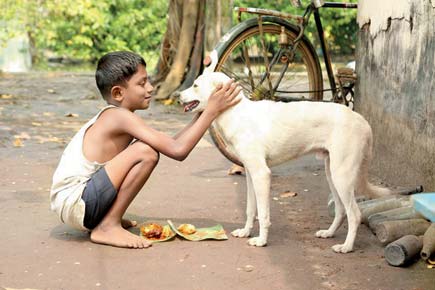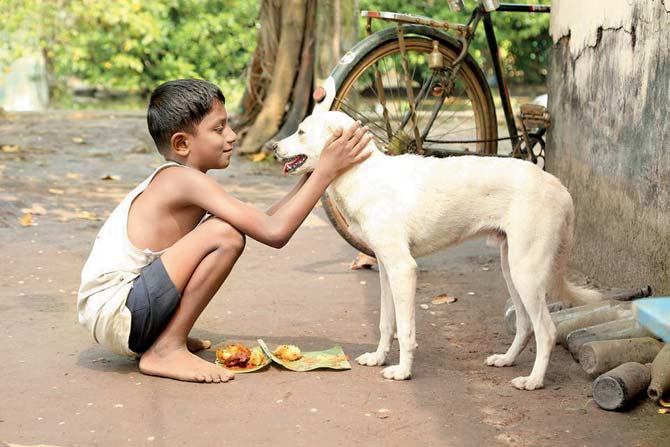Kerala and Barcelona — disparate as they are — are my most favourite places on earth. Kerala’s natural beauty and its people are its main attractions, of course

 Kerala and Barcelona — disparate as they are — are my most favourite places on earth. Kerala’s natural beauty and its people are its main attractions, of course. But when I attended the 20th International Film Festival of Kerala (IFFK) this year, the snapshot that remains in my mind is of a rag picker taking a break to read the morning’s newspaper on the pavement. As much as it seems a picture of a remarkably progressive state, it could also be that images “lie”, concealing stories of unemployment and how highly qualified people are unable to get jobs in the state.
Kerala and Barcelona — disparate as they are — are my most favourite places on earth. Kerala’s natural beauty and its people are its main attractions, of course. But when I attended the 20th International Film Festival of Kerala (IFFK) this year, the snapshot that remains in my mind is of a rag picker taking a break to read the morning’s newspaper on the pavement. As much as it seems a picture of a remarkably progressive state, it could also be that images “lie”, concealing stories of unemployment and how highly qualified people are unable to get jobs in the state.
ADVERTISEMENT

The film Otaal is about child labour
But when it comes to film, Kerala must be unbeatable. This is a state where rice farmers can have an animated discussion on Danish director Lars von Trier’s films with you. And where film critic and author CS Venkiteswaran’s article “Tea shops in Malayalam Cinema” has been included in Kerala school text books. Venkiteswaran told me over a coffee, that because of severe caste discrimination, including in the serving of food, he saw tea shops as an egalitarian space where anyone who could afford tea and snacks, could enter, thus creating a political space as well. In any case, addabaji is a real treat here, as the locals are so well read. In Bombay, Chetan Bhagat is the best-seller, but Venkiteswaran tells me that translation is a huge business in Kerala, and many bestsellers in Malayalam are translations from other languages, including Bengali and Marathi. “People can’t wait for the next book of Orhan Pamuk, and his translations run into many editions.” Only in Kerala, it seems.
And of course, it is always a pleasure to attend the International Film Festival of Kerala (IFF Kerala), the quality of whose films, and especially film-literate audiences, are legendary, along with those of the Kolkata International Film Festival. Shaji Karun was chairman of the festival advisory committee; it must be one of the rare instances of an active, practising filmmaker being head of an international film festival in India. Attending IFFK soon after attending the International Film Festival of India in Goa, I could not help but be thankful that IFFK is still strongly political, a thinking festival, that has traditionally had a focus on Asia, Africa and Latin American cinema, and where Korean director Kim Ki-Duk is such a big star, he caused a near-riot when he last attended the festival. A highlight of this year’s IFFK was a discussion on the legacy of the Film and Television Institute of India (FTII), saffronisation and cultural fascism, by Adoor Gopalakrishnan, Girish Kasaravalli, MS Sathyu and others, moderated by Bina Paul Venugopal, who was IFFK’s well-loved Festival Director for over 12 years. Whereas at IFFI, FTII students were not even allowed in at festival venues; they were forcibly removed and detained by the police for peacefully protesting against the appointment of Gajendra Chauhan as FTII chairman.
As for the films, I was delighted that Jayaraj’s Ottaal (The Trap), a moving and utterly poetic film about a grandfather and his grandson, that addresses child labour, swept all the top prizes-for best film, FIPRESCI film critics’ Jury Prize, the Network for the Promotion of Asian Cinema (NETPAC) Jury Prize-of which I was a member-as well as the audience prize.
Many jury members were delighted that they could eat beef chilli and beef fry at the festival lunches, as beef is banned in most Indian states, one way or another, but Kerala is one of the few states where it is freely available. Gossip had it that many guests, and especially those from from Islamic nations, who could not openly drink in their own nations, and hoped to have a good time in Kerala, were particularly miffed at being served watermelon juice, instead of alcohol at the opening night party. I was told there is no official prohibition, but stricter controls have made life difficult for tipplers. One of the main government-run festival hotels was Mascot Hotel, but all the locals called it Muscat hotel, so it felt as if the official dinners were in Oman.
The city has five theatres — Sree, Kairali, Nila, Tagore and Kalabhavan — owned or run by the government’s Kerala State Film Development Corporation. I was told that following the recommendations of Adoor Gopalakrishnan’s report (he headed an advisory panel last year), IFFK had a film market for Malayalam films, and the top five awarded Malayalam films were released in the government theatres, but got a mixed response from the audience.
Clearly year-round, high quality film curating and film appreciation education are the key. Mr Gopalakrishnan’s other recommendation in 2014, that delegate passes should be given only to those who can speak English, so that they could read English subtitles on foreign films, didn’t go down so well. Writer NS Madhavan tweeted: “Thera kya hoga, Kim Ki Duk? You can’t enter your favourite IFFK, because you can’t speak English.”
Meenakshi Shedde is South Asia Consultant to the Berlin Film Festival, award-winning critic, curator to festivals worldwide and journalist. Reach her at [email protected]. The views expressed in these columns are the individual’s and don’t represent those of the paper.
 Subscribe today by clicking the link and stay updated with the latest news!" Click here!
Subscribe today by clicking the link and stay updated with the latest news!" Click here!






